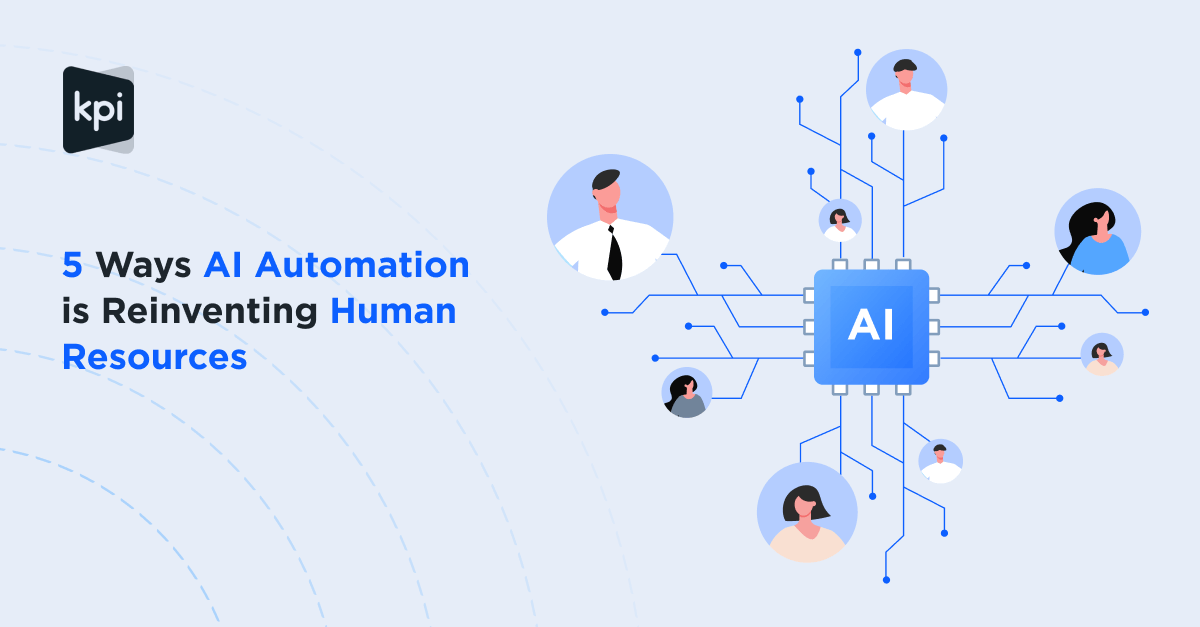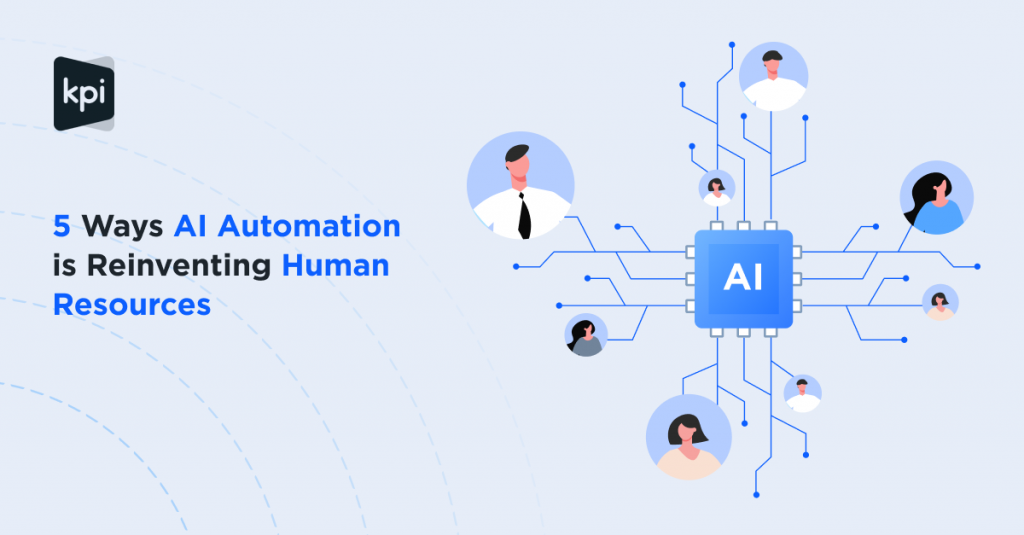
5 Ways AI Automation is Reinventing Human Resources

Over the past ten years, Artificial Intelligence’s reach and uses have dramatically expanded, opening the door to a revolution in human resources. AI is now capable of streamlining crucial processes like reasoning, speech recognition, problem-solving, and sensory perception to keep up with the fast technological improvements. It will help HR managers to carry out time-consuming processes, including hiring, onboarding, talent management, payroll, etc.
KPI ERP is an AI-enabled platform that helps HR operations run more smoothly, enabling businesses to increase operational effectiveness, attract and retain the most exemplary employees, and cut expenses. Here are five ways artificial intelligence is being used to streamline the HR department:
1. Using cognitive HRMS to make effective decisions
“A sophisticated system that learns at scale, reasons with purpose, and naturally interacts with humans” is what cognitive computing is defined as. To automate routine HR tasks, it combines artificial intelligence (AI), machine learning, contextual awareness, sentiment analysis, neural networks, and natural language processing.
Most CEOs agree that cognitive computing may significantly increase the value of human resources. Furthermore, cognitive computing can affect key HR responsibilities, according to 54% of HR executives. Cognitive computing in HR may involve gauging an employee’s mood, identifying their degree of worry, etc.
2. Recruitment and onboarding are made simple.
Through the use of Artificial Intelligence to carry out crucial tasks like skills matching, labour market analysis, bias detection in job descriptions, and competence identification, AI-enabled systems like KPI HRMS have substantially accelerated the recruiting process.
Essential features like resume screening, and automated HR FAQs will facilitate better communication with applicants, minimizing hiring effort and time.
3. Workforce Analytics Engine
Workforce analytics and planning are becoming popular among organizations. The use of AI and machine learning in ERP and HRMS systems is increasing.
AI in HR gives managers more control over problem-solving and can result in better decisions that impact the success of both employees and organizations. Real-time analytics, for instance, enables managers to see how absences, open shifts, and unforeseen schedule changes may affect key performance metrics, allowing them to make better choices that head off problems in the bud.
4. Administrative task automation
In any HR department, repetitive administrative chores are the most time-consuming. It can be pretty time-consuming to deal with the various correspondences, email follow-ups, document submissions, payroll administration, compliance management, and reviewing performance review data, among other things. Such monotonous low-level duties take up much time that could be spent addressing work-related problems.
The majority of these monotonous administrative chores may now be delegated to KPI HRMS thanks to KPI ERP. AI will handle administrative tasks like task assignment and workforce coordination. KPI ERP system is superior at handling discussions that need absolute precision, such as payroll management and compliance.
5. Retention of Employees
By analyzing an employee’s surfing habits, experience, pay scale, performance, attrition rate, keystrokes, and outgoing emails, it will assist in predicting the likelihood that they will leave the organization. You can take action to stop the employee from departing based on the data.
We strive to redefine human resources through AI with user-friendly and flexible HR tools like KPI ERP.
With an intuitive and agile HR system like KPI ERP, we aim to streamline and excel the HR department through AI.